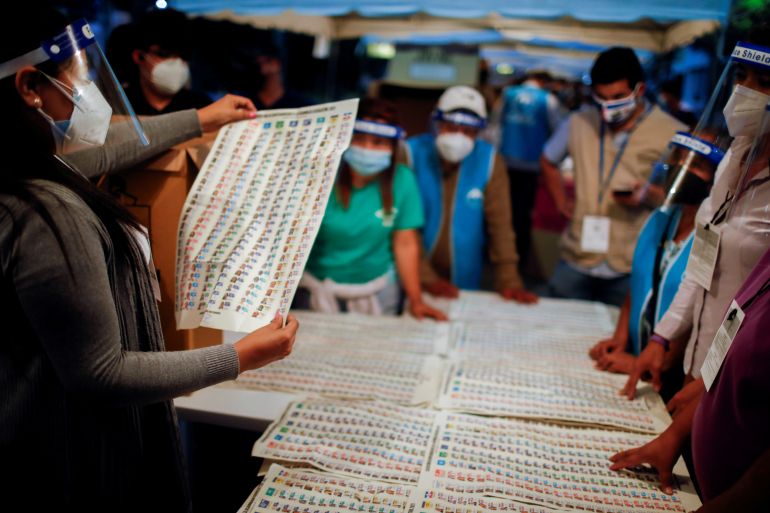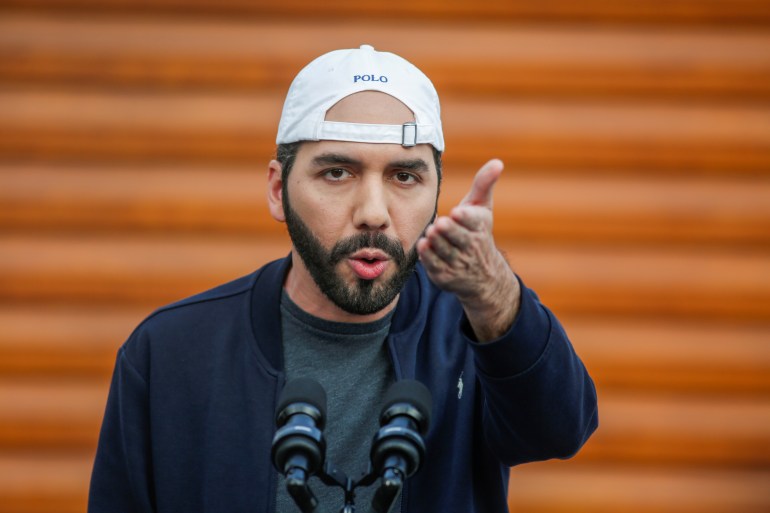El Salvador: Bukele party and allies set for legislative control
Preliminary count of Sunday’s vote suggests President Nayib Bukele’s party and its allies to get majority in congress.

A preliminary count of Sunday’s elections in El Salvador showed that President Nayib Bukele’s party and its allies are likely to win a congressional supermajority, which would further boost the popular leader’s grip on the Central American nation.
With 80 percent of the vote counted on Monday morning, the electoral authority said its projections showed candidates from Bukele’s New Ideas party (Nuevas Ideas) and the allied GANA party could win 56 seats of the 84-member congress.
Keep reading
list of 3 itemsEl Salvador elections: President Bukele set to gain more control
Voters go to the polls in El Salvador
Bukele celebrated early on Monday, tweeting, “Our people have waited 40 years for this.”
A supermajority would allow the president free rein to pick new Supreme Court judges and the country’s attorney general, along with the power to enact constitutional changes, without any need to negotiate with opposition legislators.
The 39-year-old Bukele, a populist and one of Latin America’s youngest presidents, won a landslide victory in 2019 on a pledge to root out corruption. Despite tensions with the previous congress, he has maintained sky-high approval ratings.
Slightly more than half of the 5.3 million people eligible to cast ballots participated in the elections on Sunday to pick lawmakers and local officials.

Bukele is not up for re-election, as the Constitution of El Salvador limits the presidency to a single term, but campaigned in hopes his party would achieve a majority or supermajority until his term ends in 2025.
Some election-watchers expressed concern that the lopsided results could undermine the country’s institutions. It will be the first time since the 1992 peace accords that ended a 12-year civil war that a party has won a supermajority.
Bukele’s rule has been marked with allegations of corruption and the use of the Salvadoran military to pressure the Legislative Assembly to approve a $109m loan for his security plan.
“It creates a democratic worry that we’ll lose a balance of powers,” political analyst Oscar Picardo told local television station TCS.
Still, Bukele enjoys widespread support from Salvadorans.
Wendy Henriquez, 46, who works as a street vendor in the capital of San Salvador and had never voted before casting a ballot for Bukele in the 2019 presidential election, told Al Jazeera this week that she would support Bukele’s New Ideas party.
“I’m going to vote for [Buekel’s party] because he has helped us a lot,” she said, before the vote.
The final vote count is expected to begin by late Tuesday.